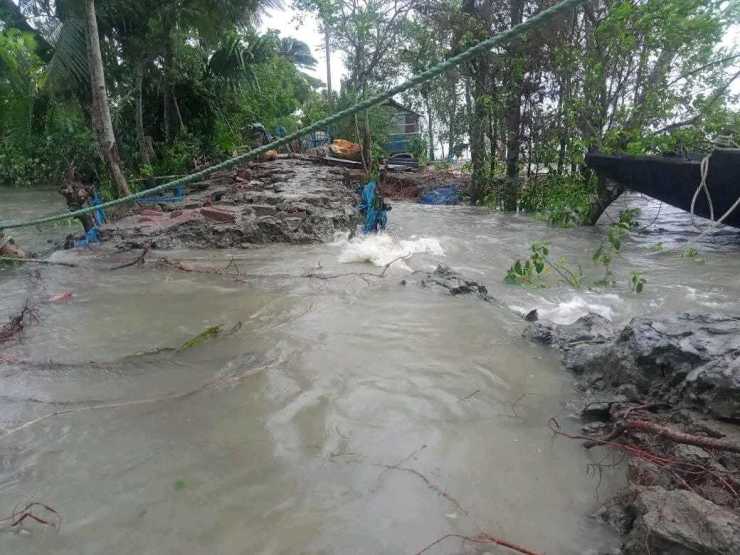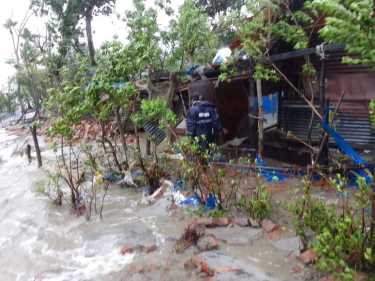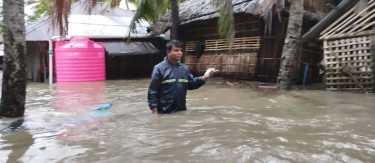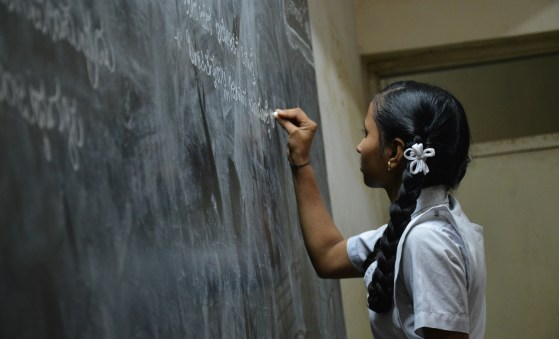
The powerful Cyclone Remal discharged its fury on the low-lying coastal areas of Bangladesh and the Indian state of West Bengal. With devastating winds up to 120 kph (75 mph) and towering storm surges, Remal left a trail of death, destruction, and suffering across both nations bordering the Bay of Bengal.
Bangladesh Inundated by Flooding
The coastal districts of southern Bangladesh bore the brunt of Remal's wrath. As the cyclone made landfall around 8 p.m on May 26th, it breached coastal embankments with its massive storm surge, inundating hundreds of villages with saltwater. Homes, roads, and croplands were swiftly submerged.
"Heavy rains unleashed by the cyclone are going on, and the wind speed is also high," said Showkat Ali, a government administrator in the hard-hit Barisal district, where at least 7 people are dead as houses collapsed under Remal's arduous winds and floodwaters.
“Especially in Mangla, Chila, Kanmari, Dangmari, Banishanta, Buridanga almost all the houses have been destroyed,” informed Reverend Martha Das, the general secretary of National Christian Fellowship of Bangladesh – NCFB to Christian Today.
Across the wider Barisal division, damage assessments painted a grim picture - over 30,000 homes were completely destroyed, with over 90,000 more partially damaged by the cyclone's impacts. Tens of thousands fled to shelters, their villages left uninhabitable.
Jenny Moushumi Adhikary, women and children coordinator of Talitha Koumi, Dhaka spoke to Christian Today from Dhaka and reported the current situation. “There is storm and continuous rain in Dhaka since last night. Coastal areas in south-west region are severely affected. Many villages are flooded by heavy rainfall. 200,000 people are estimated to be severely affected,” said Adhikary.
Power outages and disrupted relief
The cyclone's ferocious winds and flooding caused severe disruptions across southern Bangladesh. According to the Bangladesh Rural Electrification Board, over 12.5 million people lost power in the cyclone's wake as electrical lines were down all at the same time.

The loss of power and damage to infrastructure severely hampered relief efforts in the days after Remal's landing. With roads inundated and supply lines cut off, aid struggled to reach the hardest-hit communities still submerged.
Another source and resident of Dhaka told Christian Today that, “Dhaka is also experiencing severe power cuts as the rain continues to pour.”
Ten thousand telecom towers are estimated to have been disrupted causing millions out of mobile network. Twenty-two million people are out of power with the Bangladesh Power Development Board (PDB) cutting power production by half.
The death toll including two women stood at 10 as the Ministry of Disaster Management and Relief listed in a press conference at the Secretariat today (May 27), while Bangladesh had evacuated 800,000 people several hours ago.
While requesting for prayers, Adhikary told Christian Today that their Christian representatives were in the affected area. “We are trying to support those who have lost belongings and are directly affected. We are providing them with food items to sustain them for few months.”
With the news of West Bengal in India being hit by the same cyclone, Adhikary said, “Pray for Bangladesh, as we are praying for India from the bottom of our hearts.”
West Bengal's battering from wind and surge
While Bangladesh bore the brunt of Remal's flooding, the Indian state of West Bengal was pummeled by the cyclone's extreme winds and storm surge after the system made its closest pass offshore during the night of May 26th.
The low-lying Sundarbans mangrove forests bordering the Bay of Bengal took a tremendous blow. "Nearly 15,000 houses in 24 blocks and 79 municipal wards, mostly in the southern coastal areas of West Bengal, were affected," stated a senior state government official involved in the damage assessments. "At least 2,140 trees were uprooted...and 337 electric poles fell."
Farther inland, the state capital of Kolkata experienced widespread wind damage and flooding from Remal. Historic trees were torn from the ground, smashing homes, vehicles, and power lines in their paths. Over 50 mm of rain deluged the city, submerging many neighbourhoods and disrupting transit systems.

Six people are reported to have been killed, mostly by electrocution says the 8 pm May 27 report.
Two fatalities occurred in Kolkata - Sajid Sheikh was killed when the roof of a building collapsed, while Renuka Mondal perished after a tree crashed through her home's roof on Mousuni Island. Waterlogging forced the temporary closure of the city's airport.
A dual catastrophe
In the days following Remal's landfall, the scale of the cyclone's dual catastrophe inflicted on Bangladesh and West Bengal became starkly apparent. Entire towns and villages were still submerged in southern Bangladesh, over a million homes damaged or destroyed across both regions.
West Bengal's Chief Minister Mamata Banerjee expressed deep concern over the devastation, especially in the Sundarbans, as she took stock of the situation. With embankments breached, roads blocked, and hundreds of thousands evacuated or displaced, the long road to recovery was only beginning.
While weakening on May 27 as the storm pushed northward into inland areas, Cyclone Remal left immense devastation scattered across the Bay of Bengal's coastal communities in Bangladesh and eastern India. Rebuilding the battered homes, infrastructure and lives would take a monumental effort in the cyclone's wake.
According to official release, a ‘red alert’ has been issued in seven districts of Assam, for extremely heavy rainfall, and an ‘orange alert’ in 11 districts.
“We know for now that Bangladesh Nazarene Mission (BNM) volunteers are in the cyclone hit area helping. We are hoping to connect with the volunteers tomorrow to assess the condition,” said Rev. Das.




